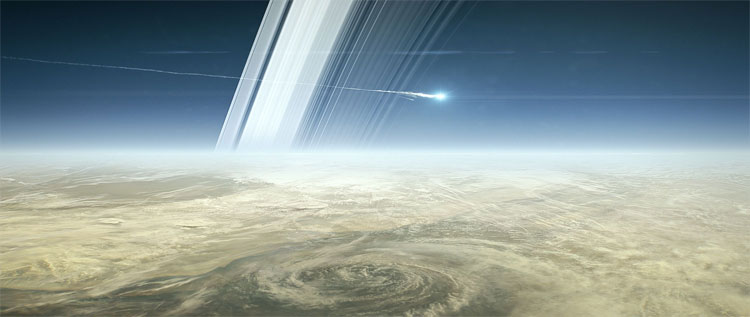The danger when cosmic garbage returns to devastate the Earth
Cosmic garbage filled the space can cause terrible consequences for the Earth.
On October 4, 1957, Sputnik I became the first satellite of humanity to fly into space. But this satellite also marks another milestone in history, which is the emergence of cosmic garbage , according to History.
Cosmic garbage are artificial objects no longer used in space, including devices that are launched or left behind, such as boosters, inactive satellites, even objects personal use that astronauts accidentally lose like gloves, cameras or shovels.
Cosmic waste has increased exponentially over the past half century.(Video: YouTube).
"The number of objects that countries have launched into space has steadily increased exponentially over the past half century. Usually when we release something into space, we are creating garbage," said Lisa Ruth Rand, Researcher at the University of Wisconsin-Madison, commented.
Now people do not know exactly how these waste products affect the universe or the upper atmosphere, what impact it has on climate change. However, they will certainly cause two major risks.
First , waste can fall back to Earth, endangering people and other animals. In 1997, a woman was injured when a piece of metal from the sky fell on her shoulder. According to NASA scientists, that could be a piece of rocket separation. Although this is the only case so far, the waste of the universe has fallen, causing injury to people, but there are still many other dangerous objects that can land on Earth.
The risk of unused devices made NASA decide to let the Cassini spacecraft plunge into the suicide planet's atmosphere on September 15, just in case the ship harmed the moons that could survive life. of this planet.

The Cassini spacecraft plunges into Saturn's suicide atmosphere.(Photo: AWN).
The second consequence worries scientists more, that is, collisions with garbage cause the satellite system to be destroyed. Cosmic garbage does not burn out in the atmosphere or fall back to Earth and will be stuck in space and still fly around the Earth. Space for satellites to be launched and operated with a certain limit. When space waste takes up too much space, satellites can crash into them.
In 2009, the first collision occurred between the US Iridium 33 satellite and Cosmos 2251 no longer active Russian satellite. After the stab, Iridium is badly damaged and immediately stops working. More seriously, the collision continues to create more than 1,800 trash debris in the universe, according to the US Space Monitoring Network.
Many people think that satellites are very remote, but people actually use their utilities every day, from phone calls, searching the way on the map, or even withdrawing money from ATMs.
If the universe is so full of garbage that no longer using satellites, people must completely change the way of life and how to work. Even the US military once claimed, there is no way to conduct such activities without a satellite, Rand said.
The US Air Force began studying satellites in the late 1950s because of fears that nuclear war could disrupt communication on Earth."They want to make sure they can communicate as usual and want to use satellites to do that," Rand said. Nuclear war is still a threat now, but cosmic garbage is also becoming a major danger.

The waste debris in the universe could fall to Earth and cause danger.(Photo: ABC News).
People have yet to find effective measures to pull cosmic garbage back to Earth, but experts are still constantly studying. The best way to reduce the rate of waste in space is to limit waste disposal. SpaceX Corporation is doing this by using reusable missiles and returning to Earth on its own.
Some cosmic waste will also be absorbed into the Earth's atmosphere through the solar cycle. Accordingly, every 11 years, polar island solar phenomena happen once. The Earth's atmosphere is affected by this phenomenon, expanding, shrinking, and can pull back the space waste. It is a type of self-cleaning mechanism, Rand said.
This does not mean that the garbage will completely disappear. Some decay into small particles in the upper atmosphere, others will fall to Earth. However, this also helps to reverse the risk of cosmic waste hitting new satellites.
In 2011, the US National Research Council said the amount of space waste reached its peak. If you don't find a way to solve the problem right away, people won't be able to prevent it from becoming a terrible disaster.
- Europe studies the project of clearing cosmic garbage
- 'Overload' cosmic garbage
- Cosmic garbage!
- Effective way to deal with cosmic garbage
- The risk of meteorites and cosmic waste threatens the Earth
- Turn garbage in the universe into radiation shield
- Russia developed a system to eliminate cosmic garbage
- Clearing garbage on the universe
- Clear up garbage on the vast universe
- Space waste - threat exists
- Japan makes a net to clean garbage in space
- Alarm on garbage on the universe
 Van Allen's belt and evidence that the Apollo 11 mission to the Moon was myth
Van Allen's belt and evidence that the Apollo 11 mission to the Moon was myth The levels of civilization in the universe (Kardashev scale)
The levels of civilization in the universe (Kardashev scale) Today Mars, the sun and the Earth are aligned
Today Mars, the sun and the Earth are aligned The Amazon owner announced a secret plan to build a space base for thousands of people
The Amazon owner announced a secret plan to build a space base for thousands of people